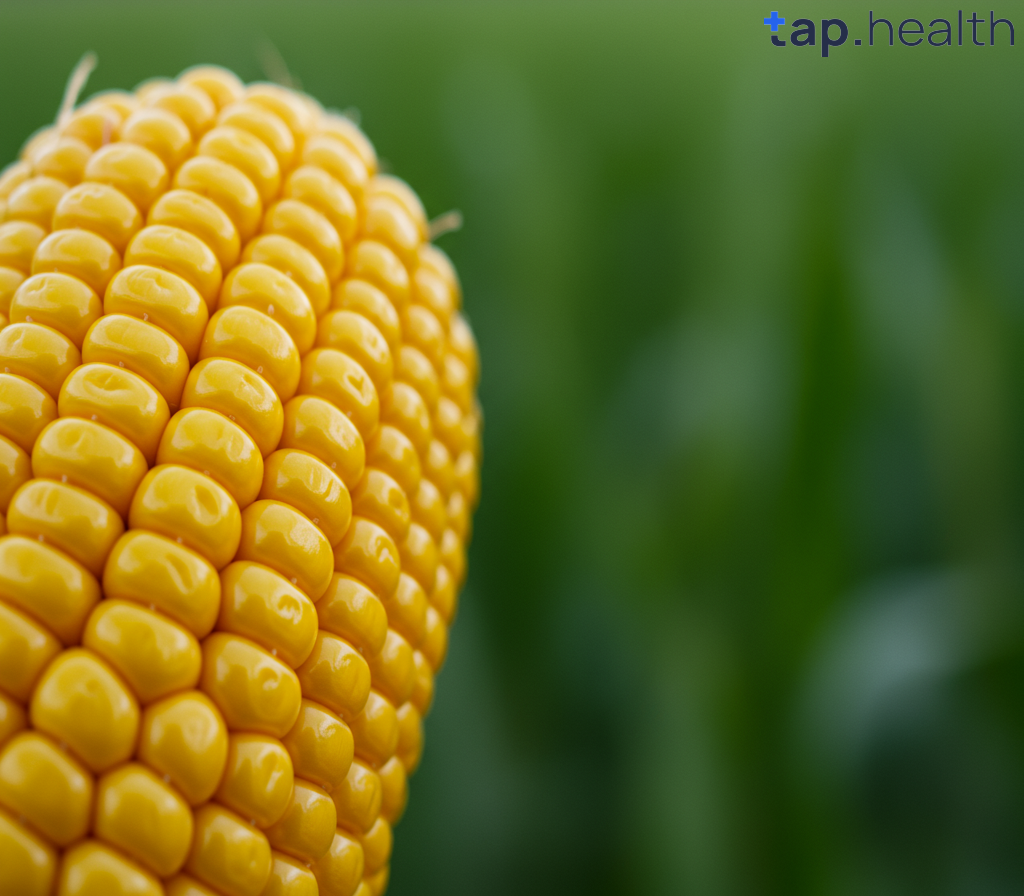Corn, a popular and versatile vegetable, is widely enjoyed in various dishes, from salads to soups to side dishes. For people with diabetes, choosing foods that help manage blood sugar levels is essential. But is corn a good food option for diabetic patients? In this article, we explore the nutritional benefits of corn, its impact on blood sugar levels, and how it can be included in a diabetes-friendly diet.
Nutritional Benefits of Corn
Corn is a nutrient-dense vegetable that provides several essential vitamins and minerals, along with fiber. A 100-gram serving of corn contains:
- Calories: 86
- Carbohydrates: 19 grams
- Fiber: 2.7 grams
- Vitamin C: 6.8 mg (about 11% of the daily recommended intake)
- Vitamin B6: 0.2 mg (about 10% of the daily recommended intake)
- Folate: 19 µg
- Potassium: 218 mg
Corn is an excellent source of fiber, which helps regulate blood sugar levels. It also provides vitamin C, vitamin B6, and folate, which support immune function, metabolism, and red blood cell production. Additionally, corn contains potassium, which is important for heart health.
How Corn Affects Blood Sugar Levels
For diabetics, managing blood sugar levels is crucial. The glycemic index (GI) and glycemic load (GL) of foods play an important role in determining how they affect blood sugar.
Glycemic Index and Glycemic Load of Corn
Corn has a moderate glycemic index (GI), ranging from 56 to 69, depending on how it is prepared. The GI of corn is higher than that of non-starchy vegetables but lower than that of other high-carb foods like white bread. Foods with a moderate GI cause a gradual increase in blood sugar, but their impact on glucose levels is higher than low-GI foods.
The glycemic load (GL) of corn is moderate, meaning that when consumed in appropriate portions, it is unlikely to cause significant spikes in blood sugar levels.
Since the glycemic index of corn is not as low as other vegetables, portion control becomes essential when consuming corn as part of a diabetic diet.
Corn and Insulin Sensitivity
Insulin sensitivity is important for regulating blood sugar levels. When the body becomes resistant to insulin, it makes it difficult to manage glucose. Improving insulin sensitivity is a key goal for people with Type 2 diabetes.
Corn’s Role in Insulin Sensitivity
While corn does not directly improve insulin sensitivity, the fiber in corn helps slow glucose absorption, potentially preventing sharp spikes in blood sugar. Including corn in balanced meals with other high-fiber, low-GI foods can help manage glucose levels and improve insulin response over time.
Corn and Heart Health
People with diabetes are at an increased risk of cardiovascular diseases. Corn provides several nutrients that can help support heart health.
Potassium for Blood Pressure Control
Corn is a good source of potassium, which helps regulate blood pressure by balancing sodium levels in the body. Since many people with diabetes experience high blood pressure, including potassium-rich foods like corn can help maintain healthy blood pressure levels and reduce the risk of heart disease.
Fiber for Cholesterol Management
The fiber in corn, particularly soluble fiber, helps reduce bad cholesterol (LDL) levels by binding to cholesterol in the digestive tract and aiding its removal from the body. Reducing LDL cholesterol can lower the risk of heart disease, which is a common concern for diabetics.
Corn and Weight Management
Maintaining a healthy weight is essential for managing diabetes, as excess weight contributes to insulin resistance and poor blood sugar control.
Corn for Satiety and Portion Control
Corn is high in fiber and complex carbohydrates, which makes it a filling food that can help promote satiety. Consuming corn in controlled portions helps prevent overeating, supports healthy weight management, and helps regulate blood sugar levels. The fiber in corn contributes to fullness and reduces the likelihood of snacking on unhealthy, high-sugar foods.
How to Include Corn in a Diabetic Diet
While corn should be consumed in moderation due to its moderate glycemic index, it can still be part of a balanced, diabetes-friendly diet. Here are some ideas for incorporating corn into your meals:
As a Side Dish
Corn can be steamed, grilled, or roasted with a small amount of olive oil, herbs, and spices for a delicious side dish. Pair it with lean proteins like chicken, turkey, or fish for a balanced meal.
In Salads
Add cooked corn kernels to salads for a sweet and crunchy texture. Combine them with leafy greens, cucumbers, tomatoes, and a light vinaigrette dressing for a refreshing, blood-sugar-friendly meal.
In Soups and Stews
Corn can be added to soups, stews, or chili for extra flavor and texture. It pairs well with beans, tomatoes, and lean meats to create hearty, diabetes-friendly meals.
In Tacos or Wraps
Corn can be used in tacos or wraps, paired with lean meats, beans, or vegetables. Make sure to use whole-grain tortillas for a healthier option.
FAQ on Corn and Diabetes
Q1: Is corn safe for diabetics to eat?
Yes, corn is safe for diabetics to eat in moderation. It has a moderate glycemic index, and its fiber content helps regulate blood sugar levels. However, portion control is important to avoid significant spikes in blood glucose.
Q2: How much corn can diabetics eat?
A standard serving of corn is about 1/2 cup (cooked). Since corn has a moderate glycemic index, it is best to consume it in controlled portions as part of a balanced meal.
Q3: Does corn raise blood sugar levels?
Corn can raise blood sugar levels, but its impact is moderate due to its glycemic index. The fiber in corn helps slow the absorption of glucose, reducing the likelihood of significant blood sugar spikes when consumed in appropriate portions.
Q4: Can corn help lower blood sugar levels?
Corn does not directly lower blood sugar levels, but its fiber content can help regulate blood glucose and improve insulin sensitivity over time, especially when eaten as part of a balanced meal.
Q5: Can corn help with weight loss for diabetics?
Yes, corn is low in fat and high in fiber, making it a good choice for weight management. The fiber helps promote satiety, reducing the likelihood of overeating and supporting healthy weight loss for diabetics.
Conclusion
Corn is a nutrient-rich food that offers several health benefits, including supporting heart health and weight management. While it has a moderate glycemic index, its fiber content helps regulate blood sugar levels, making it a suitable option for diabetics when consumed in appropriate portions. By incorporating corn into your meals in moderation, you can enjoy its benefits while managing your diabetes effectively.



